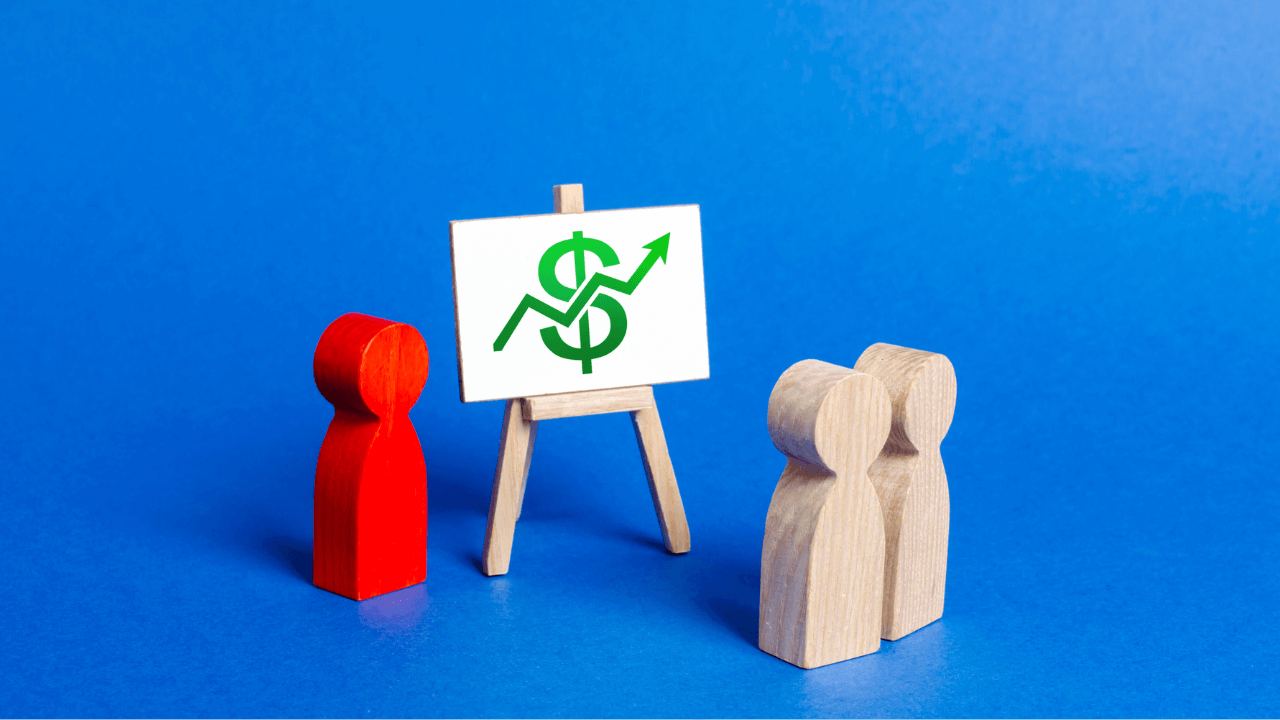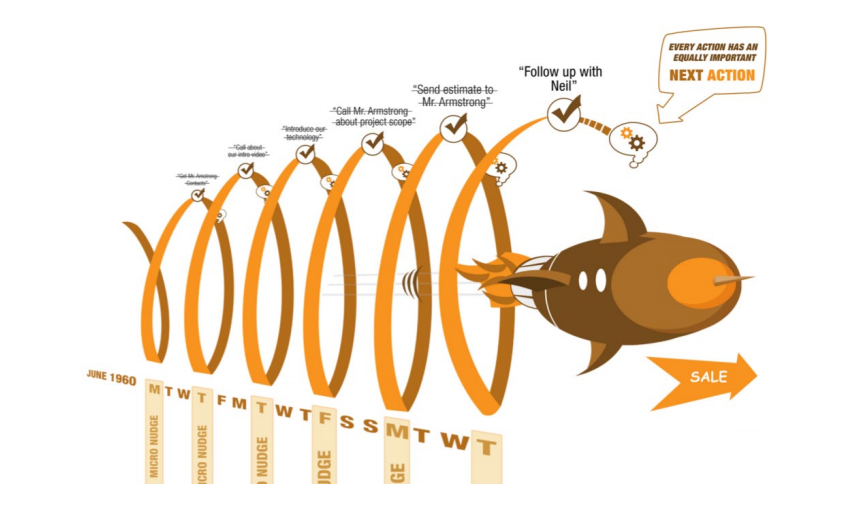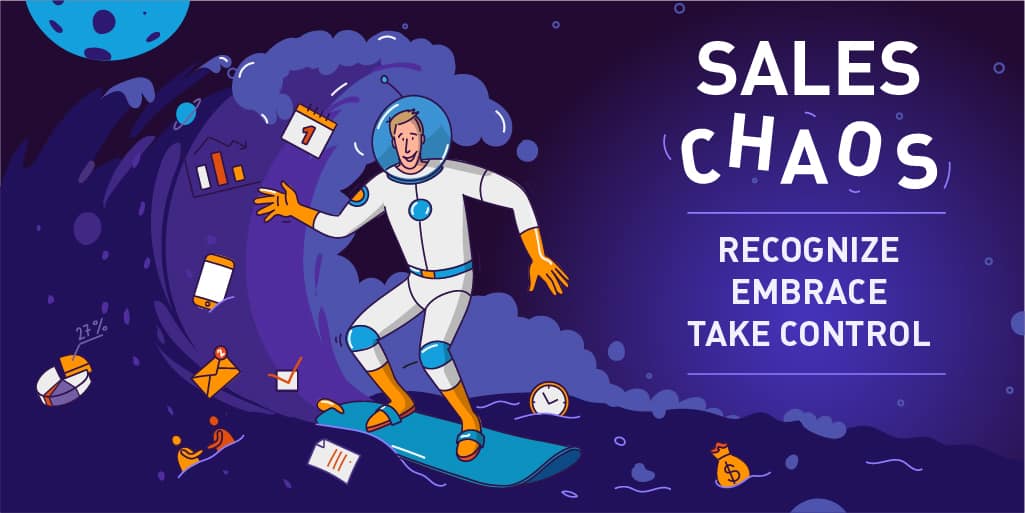

There are many different sales tactics that you can use to grow your sales.
But the truth is: not all of them are effective.
In this blog post, we collected the 12 most effective sales tactics from across the internet. You can use them to not only increase your sales but to redefine your entire perspective on what a good sales strategy is.
What are sales tactics?
They’re the well-formulated strategies or actions that a business employs to persuade prospects to make a purchase. This could be anything from a well-crafted email campaign, the ever-charming cold call, to nailing your pitch in a face-to-face meeting.
In simple words, sales tactics are your sales actions.
Top 12 sales tactics and tips to grow sales
Let’s dive into the pool of sales tactics that can drive your business growth. These are useful strategies to attract, impress, and retain customers.
1. Create urgency
Imagine you’re at a market, and you’ve got your eye on a beautiful vintage lamp. You’ve been circling it for a while, but you’re not quite sure if you should buy it. Suddenly, the vendor announces, “Last one left! Grab it before it’s gone!” And just like that—you’re racing to buy the lamp, your indecisiveness vanished in a blink.
This rush you felt is the essence and power of manufacturing urgency in sales—a dynamic strategy that nudges customers to make purchase decisions swiftly. It plays on the fear of missing out (FOMO), persuading customers that they must act immediately or risk losing out.
Here are a few practical examples of how you can manufacture urgency:
- Limited-time offers: “Sale ends tonight” or “Offer valid only for the next 3 hours”. These catchy phrases create a sense of urgency by mentioning a looming deadline.
- Scarce availability: Using phrases such as “Only a few items left in stock” or “Last chance to buy” can make customers feel they have to act fast or miss out—and who likes missing out, right?
- Exclusive deals: Offering ‘early-bird’ discounts or exclusive deals for immediate purchases can also create urgency.
2. Be deliberate in your sales efforts
The job of a salesperson doesn’t end with making a pitch. It’s about guiding the customer through the journey, one step at a time, all the way to the finish line.
The Next Action sales method is all about this.
It encourages salespeople to focus on their next best step creating an uninterrupted flow of sales actions, each one bringing you closer to sealing the deal.

Without a clear next step at the end of each email or call, the customer might feel lost in the sales process. They may even forget about your product amidst the sea of options out there.
By setting a clear next step, you’re freeing your mind for other tasks and letting your trusted tool to remind you once the time is right for the next touchpoint.
3. Use your creativity
Creativity in sales is like a refreshing breeze in a stale room—it wakes up the recipient and catches their attention.
Here are some ways you can sprinkle a dash of creativity into your sales outreach strategies:
- Personal videos: Instead of the usual email, why not send a personal video? You could introduce yourself, provide a quick overview of the product, or even give a mini demo.
- Custom landing pages: Imagine directing a prospect to a landing page designed specifically for them, with their name and product recommendations. It’s like walking into a store that knows exactly what you want.
- Interactive content: It can be a quiz to help them determine which product suits them best, or a gamified demo where they can ‘unlock’ features and benefits. This not only gives them hands-on experience of your product but also makes the sales process fun and engaging.
- Creative follow-up emails: Tired of the old “Hope this email finds you well”? Spice up your follow-ups. Share an interesting fact related to your product or industry, or even a light-hearted, relevant joke. Make your prospects look forward to your emails.
4. Learn to connect the dots
In sales, there’s more than meets the eye, and simply securing a ‘yes’ doesn’t always equate to a win.
You might be talking to someone who’s excited about your product, fits your ideal customer profile (ICP), and checks off all your discovery criteria.
But what if they’re leaving the company in a month?
AI tools might not be able to pick up on these subtle factors. Salespeople need to see the bigger picture and connect the dots.
Here are a few practical tips to help you:
- Ask the right questions: Don’t just find out about their need for your product—also ask about their role, their decision-making authority, and their long-term plans at the company.
- Build more relationships: Network within the organization. The more people you know, the more you’ll learn about the internal workings and future plans.
- Keep an eye on company news: Follow your prospects on social networks and stay updated on any changes that might affect your sale, like staffing changes or new initiatives.
5. Keep it personal (not just personalized)
In this era of swift digital exchanges and AI dominance, salespeople need to remember a fundamental truth—that they are dealing with people. This human-to-human aspect of sales is often overlooked in the quest for efficiency and automation.
But let’s pause for a moment.
Think of a time when a professional relationship felt more personal to you.
Felt good, right?
Now, consider this: What if during a sales call with Sarah, your potential client, she mentioned her team’s struggle with a specific problem that cannot necessarily be solved by your product or service.
Remembering this point and following up with a solution or even an article that addresses her issue shows that you’re not just in it for the sale. It shows you care—and that’s personal.
6. Embrace inbound sales
Picture this: You’re in a bustling city market. One vendor after another is yelling to get your attention, each trying to persuade you their product is the best. It’s loud, chaotic, and a bit overwhelming.
This is a metaphor for outbound sales.
Now, imagine an alternative.
You enter a quiet store, where a friendly salesperson greets you, takes the time to know you, your needs, and preferences. Instead of pushing their products onto you, they guide you to items that cater to your specific needs. This sounds much better, right?
Ths is how inbound sales work.
Inbound sales is a sales strategy that focuses on individual buyers and their personal needs, pain points, frustrations, and goals. It’s about providing value to people even before they become customers (this is where the alignment between marketing and sales comes in).
An example of implementing inbound sales could be starting a blog on your website where you share valuable content related to your industry or product. You might also create instructional videos, host webinars, or provide free e-books.
These materials should not be just promotional—they should offer real, tangible value to potential customers by addressing their needs and challenges.
7. Learn from rejections
Rejection. It stings, it hurts, and it bruises our ego.
But sales involves dealing with a lot of no’s.
If you look at it closer, each no is an opportunity for growth. It’s your secret detective, giving you insights, clues about why things didn’t work out. Was it the wrong customer profile? Or perhaps your sales pitch needs a little tweaking?
The key is to take a step back and self-reflect.
Here are a few things to keep in mind:
- Reframe the concept of rejection: Treat each “no” as a learning experience, not a personal failure. It’s just a sign you’re doing your job, pushing boundaries, and taking risks. Besides, a prospect that is not a good fit from the start will quit using your product sooner or later. So shift your focus onto those prospects who see the value of what you are offering.
- Embrace feedback: If a customer tells you why they’re not interested, listen carefully. This feedback can be a goldmine of insights for improving your sales approach.
- Practice emotional intelligence: Understand that a client’s rejection of your product or service doesn’t equate to a rejection of you as a person. Keep emotions in check and approach each interaction with a clear, focused mind.
- Self-reflect: Spend time reflecting after each rejection. What went well? What could you improve? What would you do differently next time?
- Don’t isolate yourself: Sales is a team sport. Share your experiences with your team or a mentor. Chances are, they’ve faced similar situations and can offer invaluable advice.
- Continuous learning and improvement: Use every rejection as an opportunity to hone your sales skills. Attend workshops, read books, or take courses to consistently improve.
8. Consult, not sell
To truly excel in sales, you have to become more than a salesperson. Just picking up the phone and cold calling? That’s old school.
In today’s business environment, it’s all about becoming an expert in your industry, almost like a consultant. You need to deeply understand how your market works. Why are you selling to these people? What are they looking for? What is trending right now in your industry? What books is everyone talking about?
You’re not just selling a product or service, you’re selling solutions to problems and for that, you need to know your industry inside and out.
And this brings us to consultative sales. With consultative sales, you’re not just selling, you’re advising, guiding, and problem-solving.
9. Create your cadence
Think of your daily life as a song, with the rhythm being your routine. Just as a catchy tune sticks in your mind, an effective sales routine can help you sail through your day.
The repetitive cycle of prospecting, reaching out, following up, and scheduling calls can turn from a boring routine into a powerful sales tactic. Similar to how musicians need a rhythm or a tempo, you can create a fine-tuned sales process.
Establish a specific rhythm to your work that suits you.
Measure its effectiveness.
Does it help you do your work efficiently? Do you need to swap a few things? Should you eliminate some steps altogether?
10. Get on social
In today’s business environment, having a strong personal brand is a must. Especially, for anyone working in sales or business development. Regardless of how big or small your company is, you probably use LinkedIn quite regularly.
LinkedIn prospecting can offer you a lot of opportunities for new business relationships with potential clients and partners… should you choose to build those relationships.
There are many ways you can use LinkedIn to level up your sales game. Commenting regularly on relevant posts helps you attract attention and highlight your expertise. Expanding your network makes you also more visible in the industry circles.
11. Encourage customer referrals
Did you know that word-of-mouth marketing is one of the most effective ways to boost sales?
That’s why you need to encourage newly converted customers to spread the word about your product or service. You could even offer a referral program to incentivize this process.
It’s simply about working smarter, not harder, and using your sales victories to bring even more victories your way.
Start by asking them for a quick testimonial or a referral. There are many ways you can ask for a customer feedback without being too pushy. Their fresh excitement and satisfaction with your product or service can capture the attention of other high-quality leads and draw them towards you.
12. Turn CRM into a productivity tool
Your CRM isn’t there to make your life harder—it’s there to guide you to success.
But let’s take a moment to talk about the elephant in the room—the widespread fear and frustration around CRM systems. You might have come across a sea of complaints if you’ve ever googled ‘Salesforce complaints‘ or looked through Twitter threads on CRMs.
But it doesn’t have to be that way.
That’s why we built a very simple CRM system for proactive salespeople.
Every lead in the system has a time-sensitive reminder next to them which makes OnePageCRM both: a simple contact database and a powerful productivity tool.

Provide value with any sales tactic
Navigating the labyrinth of sales tactics isn’t about memorizing a handbook of tricks designed to deceive your potential clients.
Quite the contrary.
Sales tactics are clever strategies, efficiency hacks, to make your work easier and more effective.
Every sales tactic, every approach, every conversation—it all boils down to one key principle: providing genuine value to your customers. It’s about understanding their needs, their wants, their problems, and then catering to these with your offering.
Feeling unsure if your solution is the right match for them? Ask them questions and remain curious. That curiosity is a key step for becoming a successful salesperson.
Use these sales tactics to open doors to long-lasting business relationships.










